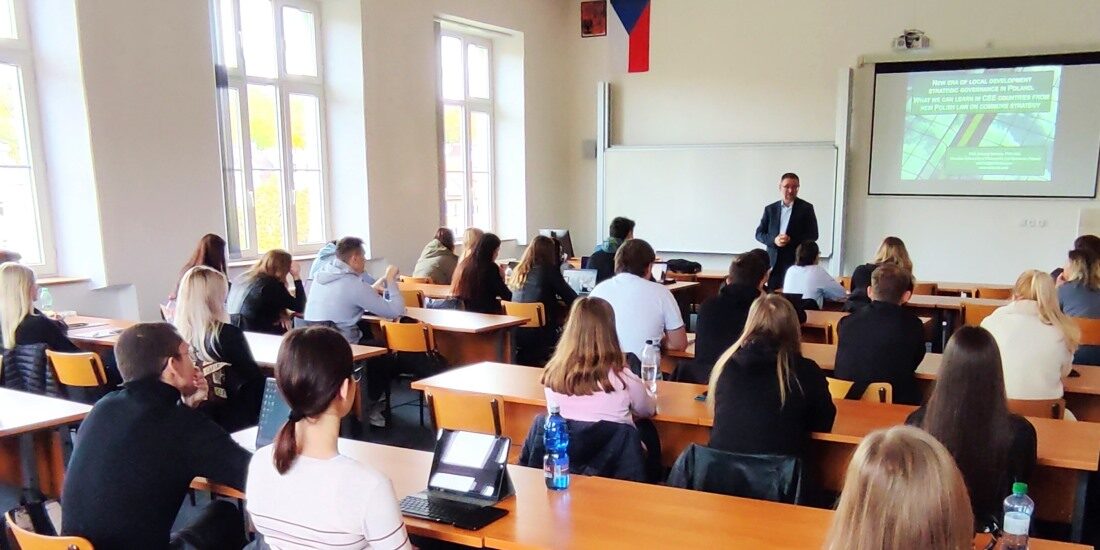- 21 October 2022
- Posted by: andrzej.sztando
- Category: Lectures at foreign universities

During my lectures at Univerzita Jana Evangelisty Purkyně v Ústí nad Labem – UJEP, Czech Republic, I talked with students how the financial independence of local self-governments influences how they develop their communes. On the one hand, if self-governments have money for investments mainly from state authorities in the form of grants, even huge ones, they can spend these money only on what they have been given. Then the state authorities actually decide what is developing in the communes and what is not. What the subsidies are not allocated for, will not develop. Moreover, the more and longer that would be, the sooner self-governments would turn into administrators – rather passive, waiting for top-down money and guidelines how to spend them, rightly convinced that they do not manage development. As a result, the country would lose many engines of bottom-up development, and people, companies and the environment would be worse off. To prevent this from happening, many postulate in Poland and other decentralized countries for more money, which the local self-governments can spend at their own will, in accordance with their own ideas of development. I postulate as well.
However, on the other hand, are all local self-governments equally capable and ready to spend constant, large, “non-marked” money to a satisfactory degree on investments? What is more, for accurate investments that will bring sufficiently good social, economic and environmental effects, not only local, but also regional or national, in the overall long-term scope? Most of them probably yes, but unfortunately not all of them, what I described a long time ago in my article: “Ephemerides, cathedrals in the desert and ballast in local development governance of small towns” https://cutt.ly/IB9Pkiw Perhaps, however, the grants are needed and in some places improve the accuracy of local investments?
So where is the golden mean between local and national development policies and what financing system would provide it? What is the significance of the constant education of tens of thousands of members of local self-government authorities for its achievement, whom we change every few years in elections? It was great to discuss all these issues with these young people!
